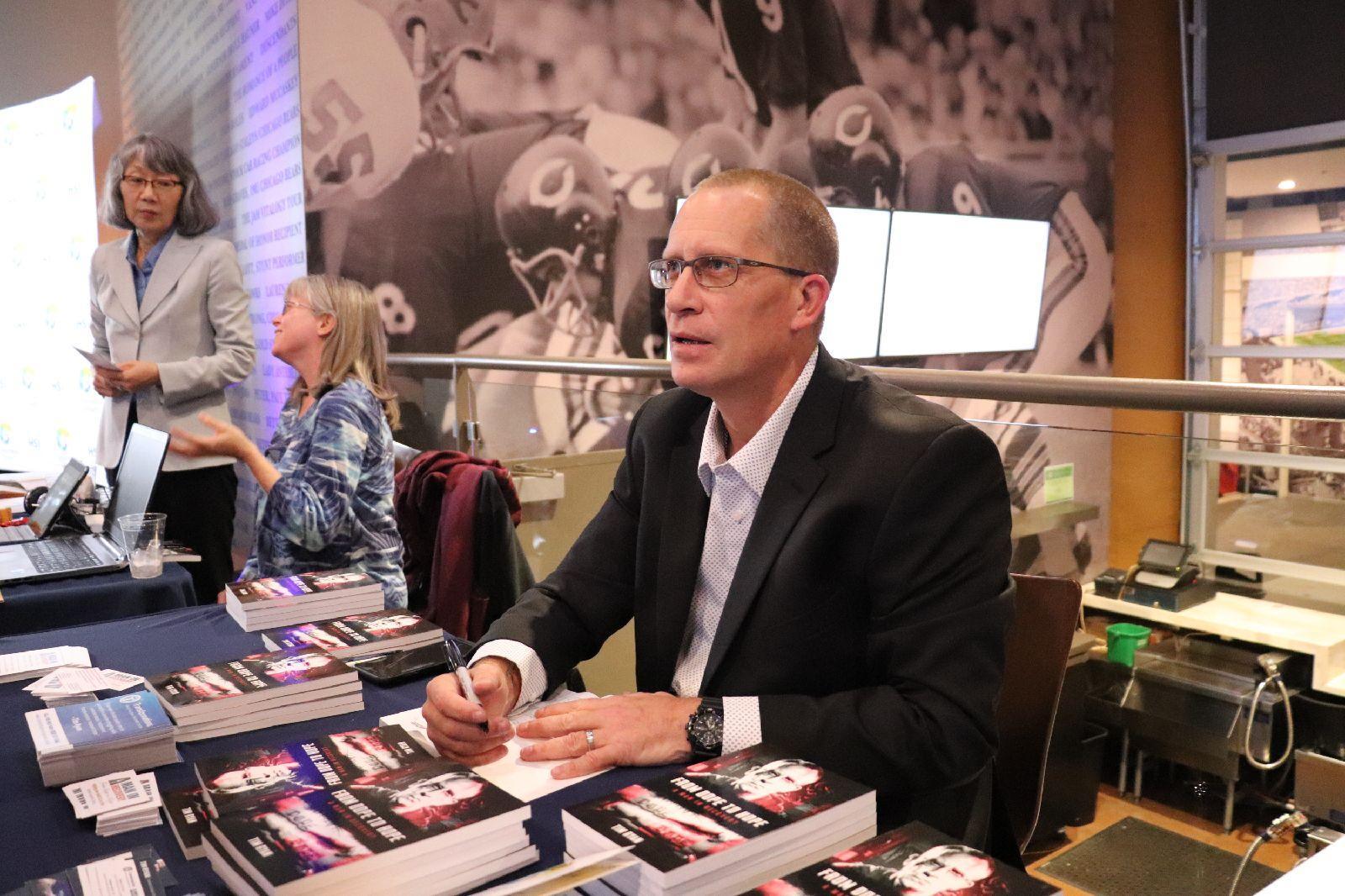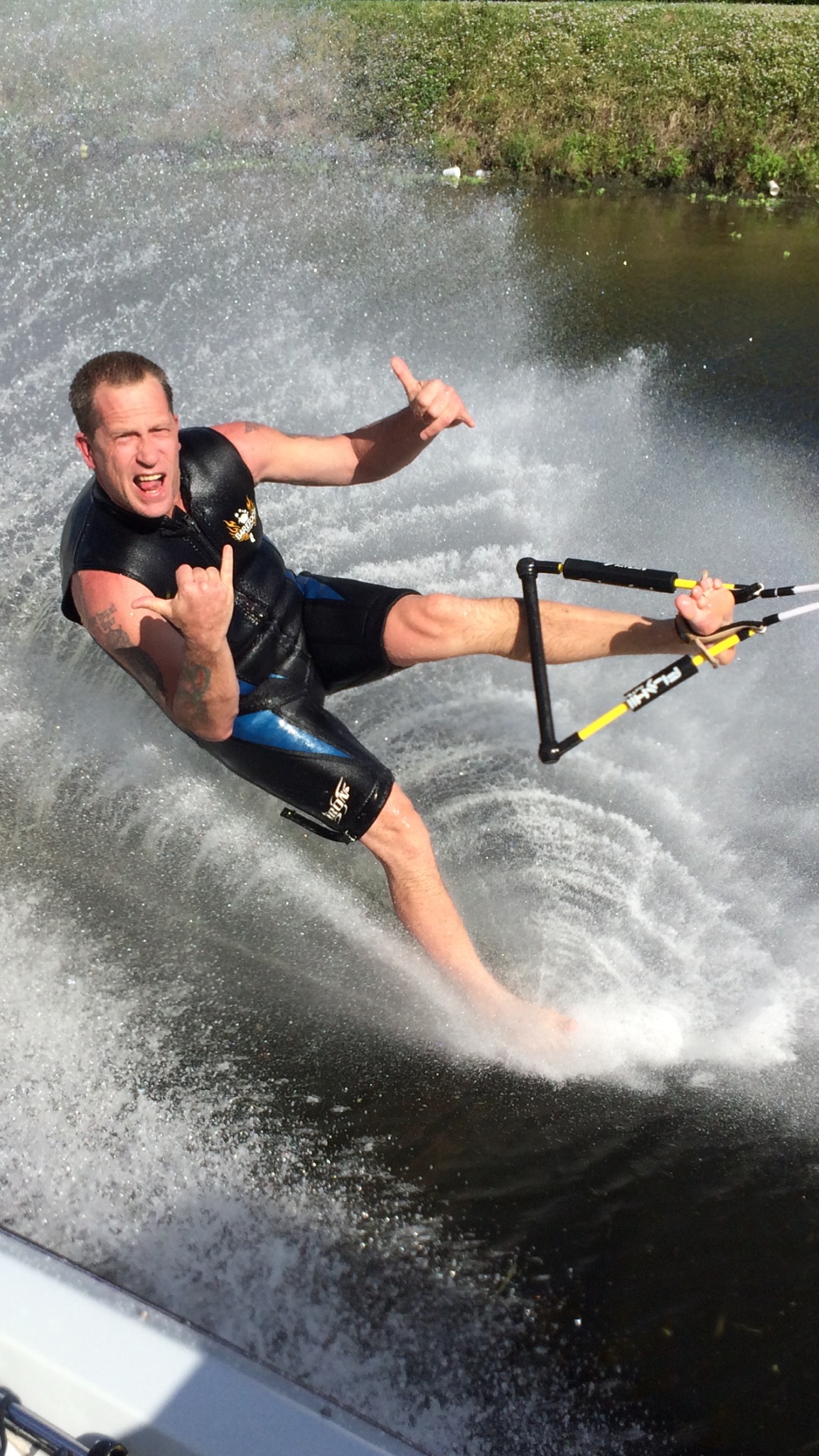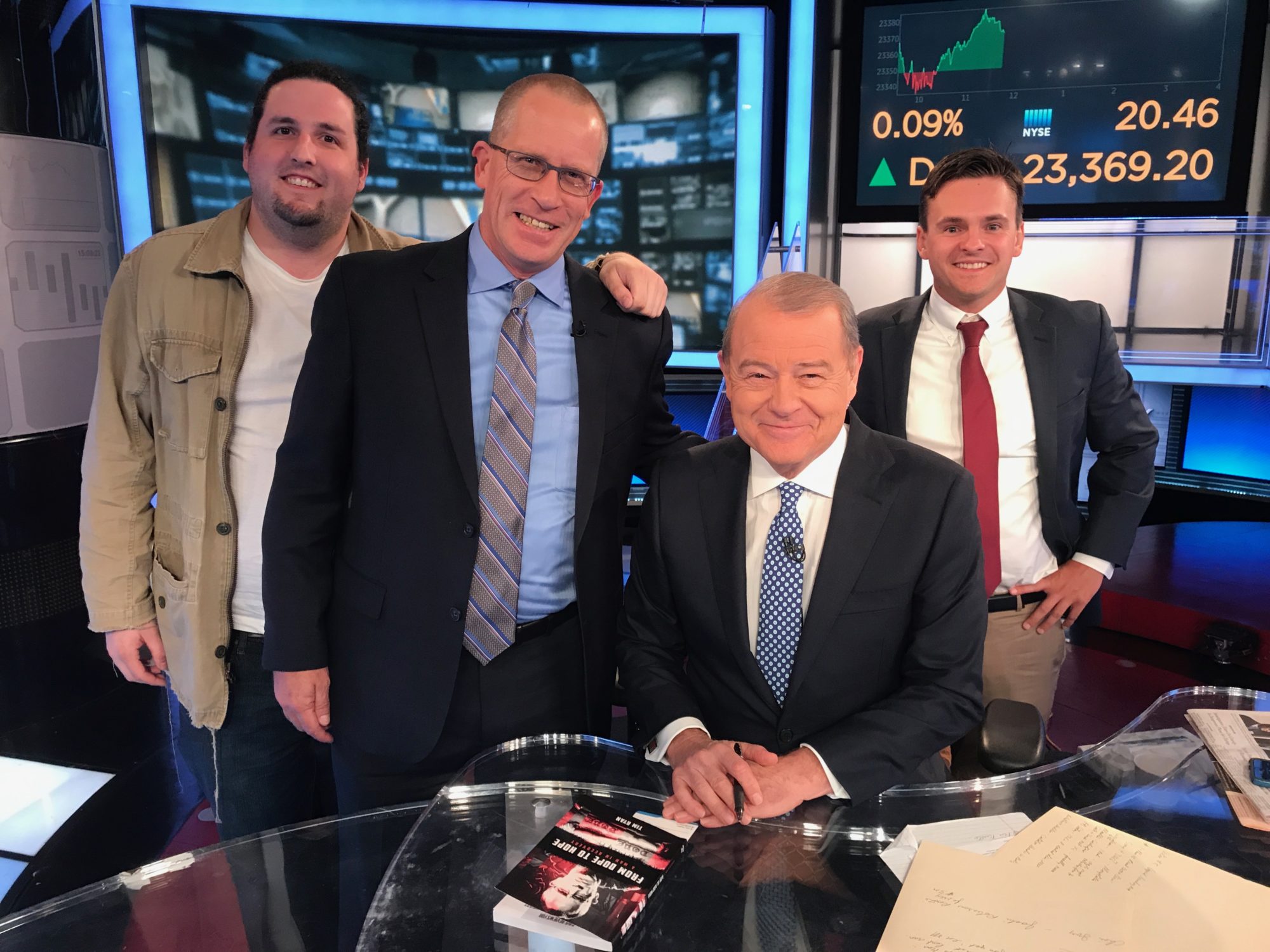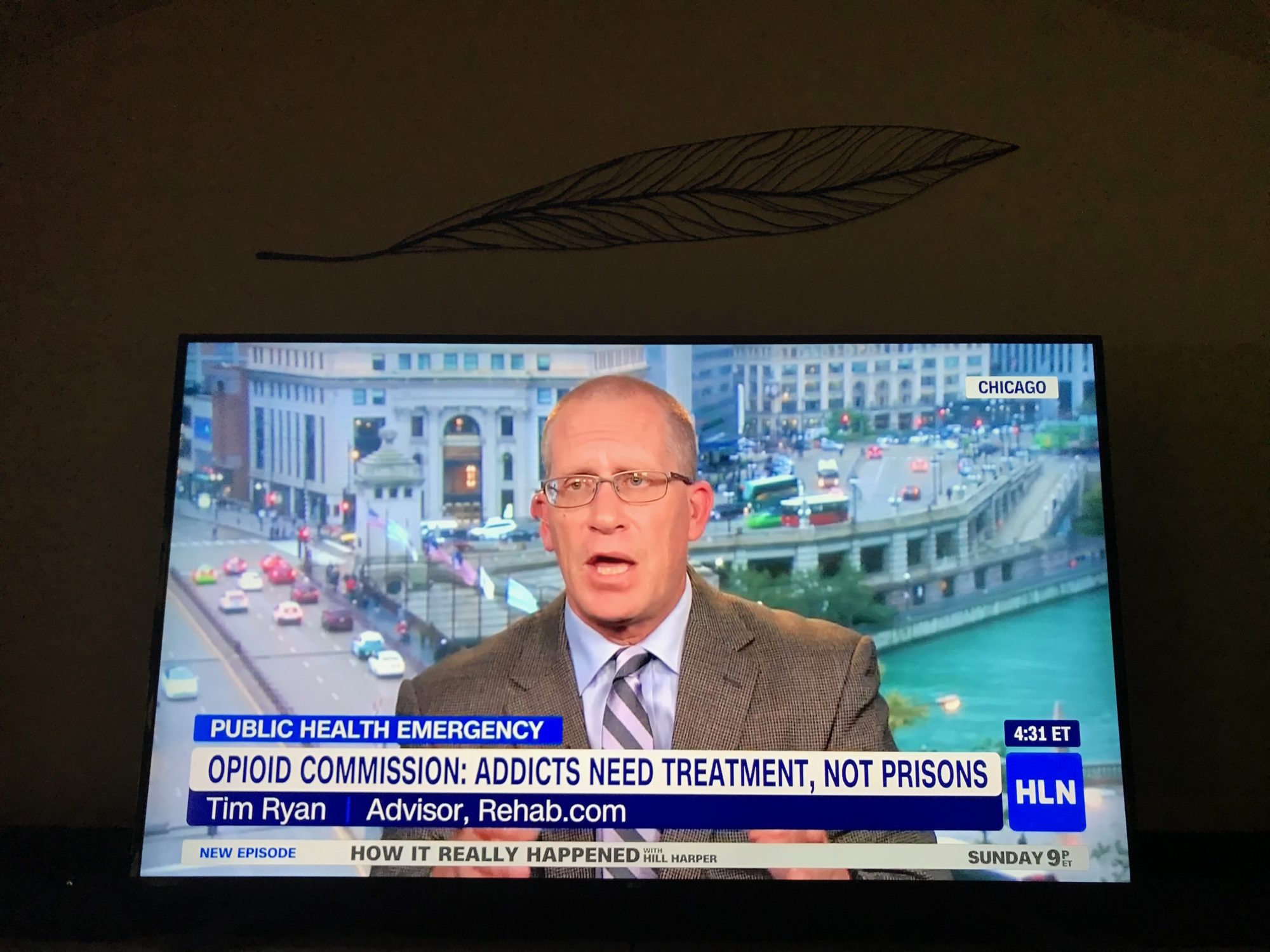“There is a God, and His name is not Tim Ryan.” Those are the words I eventually uttered as I found myself in a cold prison cell for a crime I had committed.
For years, I’d lived as if I were God. Except, instead of creating things of beauty, I birthed chaos. Instead of helping others, I was a major source of suffering for those I loved, including my saintly wife and four beautiful children.
Sure, I had it all together on the outside. I had a beautiful house with an expensive boat sitting on the lake. I had a great job in downtown Chicago—well okay, jobs, since I seldom kept one for long. Once, when I still thought I was God, I jumped on the desk of a female coworker and said something pretty crass. I thought I was untouchable because I always made my company lots of money. So yeah, I was high on myself—and a lot of other things.
I would love to blame my parents for my descent into addiction. But I can’t. They were good Catholics who raised me right. They adopted my brothers, sister, and me and showed us real love. They supported my waterskiing—which allowed me to become nationally ranked. I loved getting up on the lake and skiing barefoot, showing the world my tricks.
I loved that almost as much as the tricks I pulled to get high—and the beer and drugs I consumed as soon as I got off the lake.
Those years of “Tim as God” stopped when my heroin addiction led me to seek just one more high—and that left me on the side of the road in my car, unconscious. I woke up on a gurney with a lot of yelling around me. The nurse said, “I think you killed two people.” And guess what I thought: At least they don’t have my blood and urine; I can beat this thing.
It would be hours before I’d learn that, while I hadn’t killed anyone, I had put four people in the hospital, including a nine-month-old baby. God started chipping away at me. I began to realize that maybe I wasn’t in control after all.
But I still didn’t see things clearly. I dabbled at recovery, but I did it so I could find a way to drink and drug responsibly. That thing called “sobriety” didn’t sink in with me. Why would I want to do that? I liked my drugs more than sobriety. I had no problem talking to God—except I did all the talking and no listening. I kept telling Him how things would be instead of asking Him how I could be of service.
I remember lying dopesick in the bathtub one day. My oldest son, Nick, walked in and plopped something down on the counter. “Here, Dad. This ought to help.” Looking over, I saw a bag of heroin. My heart dropped.
“Nick, you shouldn’t be doing this crap.”
“Don’t worry, Dad. I’m only dealing a little. Besides, you’re a successful drug addict.” His words stopped my pulse. How could my own son think there was such a thing as a successful drug addict? Sure, I was successful as measured by income. And I was a drug addict. I couldn’t wrap my head around it. But I took his bag of heroin and stuffed my dopesickness for another day.
In a matter of weeks, Nick and I were doing heroin together. I offered it to his friend. The kid refused. God was protecting him. I wish I could say the same for Nick, whose choices were pulling him down a path of destruction.
As I faced trial, something began to stir in me. I began to see that I was not in control. Tim was not God. In researching the options for prison, I learned that Sheridan Correctional Center in Illinois had a strong recovery program. I have to get into Sheridan, I told myself. It became my new obsession. I have to recover…or I will die. For the first time, I realized I was already dying.
On the way to my sentencing, I bought 60 bags of heroin. I snorted ten on the way and tried to stuff the rest in my jacket and various places where no one would find them. Yet I desperately hoped that when I got to jail, I could detox properly.
“Three-three-one,” the judge said. I had no idea what that meant, but my attorney said it meant I had seven years. With good behavior, I could be out in 18 months.
“God, I need you,” I prayed. “And I need recovery.”
A lot of people wanted to get into Sheridan, but not all of them were serious about recovery. God was protecting me—and my heart. By what I now see as a miracle, I got into Sheridan. And I got a cellmate whom God knew would nurture my recovery. I called him Big Perk. He was a known gang member. He could bench 500 pounds. And he was serious about recovery.
We spent countless hours talking about the things God could do in our lives. We wanted to start a ministry to help those stuck in addiction and violence. Perk’s own son had been shot by gang members. Hope pulsed through my veins, replacing the heroin that had scarred them not long ago.
I lived and breathed those 12-step meetings. I saw how God had been with me the entire time. Though I had denied Him, He hadn’t abandoned me. I realized He’d always given me a choice—to walk away from Him, into destruction, or toward Him, into His promises.
I began to see beyond myself for the first time. God could not only save me, He could help me serve others. It was not a concept I’d considered before, and it gave me a new reason to live. I began to put together plans for a nonprofit, A Man in Recovery Foundation. I would help people out of addiction and into hope. Perk and I often talked into the wee hours of the morning about our recovery and the things we’d do when we got out. I had found a purpose beyond serving myself.
As my spiritual life took form, my physical world began falling apart. “Tim, I’m sending you something,” my wife said on the phone one day. Oh, goody, I thought. I love packages. But she anticipated that I’d be clueless, so she told me, “I want a divorce.” My heart fell out of my body, but I could not blame the woman. I had caused us to foreclose on our beautiful home. I had neglected her and the kids. My sweet and innocent daughter had to experience her 12th birthday while her daddy was in prison. I was a loser, by all worldly accounts.
I dug deeper into my recovery. I needed my Higher Power, because Tim Ryan was as low as they come. As I got closer to God, I discovered that He didn’t see me as low and worthless. He saw me as He saw all His children: I had value and a purpose.
The time came for me to be released, and I knew it would be tough to maintain sobriety. I also knew that if I didn’t, I would not make it. I clung to sobriety like I used to cling to drugs. The difference was, this time, my life was getting better. I had found something I’d never had before—hope and the love of a community who loved God more than themselves.
As my foundation took shape and I began reaching out to help other addicts, my own son began slipping further away. Nick was in and out of jail for various drug-related offenses. At one point, he seemed to be turning a corner. “Dad, we can go speak around the country and help people out of addiction,” he stated. I could not have been more thrilled.
Months later, I got a call from my ex-wife. “Nick’s in the hospital,” she said. “He’s overdosed.” My blood stopped. I dropped my coffee and jumped into the car. We walked together into the ER and down the hall toward his room. A chaplain walked out, and I knew in that moment. After what seemed like an eternity of being shuffled around by doctors, I went to see Nick. Tubes still hung out of his mouth, but the machines were silent. He was gone.
Nothing could prepare me for losing a child to an addiction that I knew I not only hadn’t helped stop, but I had helped to feed. In that moment, I could have ignored all the work that God had done in my life and reached for my drug. Instead I told myself, “I need to get to a meeting.” And I did.
At that meeting, I shared what had happened. Things started to shift. People were moved toward sobriety when I shared my story. The newspaper ran a big article on Nick, and his funeral was packed. His loss brought people to recovery. Doors opened for me to tell our story in bigger ways. God was somehow using the most painful and broken parts of my life to build something beautiful.

The pain of losing Nick never leaves me. I carry his ashes around my neck as a reminder that everything I do must be with recovery and God at my core. I know that one bad decision could put me right back where I was.
Recently, I walked back into Sheridan—but not to be placed behind bars. I went to minister to those who were there. It wasn’t the first time I’ve been there since I was released, but I was the first ex-prisoner they’ve ever had speak.
God continues to bring opportunity for me to share my story through the ministry He has built for me. I am honored to have been invited to the 2016 State of the Union address. Real Leaders magazine named me one of their 100 Visionary Leaders of 2018. I’ve been featured in Newsweek, HLN, Fox News, The Steve Harvey Show with Dr. Drew, The Chicago Tribune, USA Today, and more. I have a book—From Dope to Hope—that thousands of people have read. I speak nationally and help guide people into recovery. A&E aired a special about my work called DopeMan. I am the national outreach director for Transformations Treatment Center. But none of it is me. It’s Him. God speaks through me, and any resulting good thing is because of Him.
I’m known for saying, “Where there is life, there is hope.”If you are wondering if there is hope for you, look at my life. I lost everything. Only when I surrendered my life and will over to God did I find the love and purpose I needed to know. And let me say, sobriety does not suck.
Recovery does not come like a hurricane, taking over everything you are in an instant. Itcomes like a gentle wave, that at first you might not notice. You must be willing to walk into it, even when it feels unnatural.You must trust Him. The road to recovery is not easy; it feels shaky at first. But it is the road to life.
One choice, one day, one breath at a time—God wants to recover your life. He wants to give you hope to live another day, to contribute to others’ lives in positive ways. It doesn’t matter if you are free or in prison for life, He wants to make your life matter.My life had meaning, even when I was behind bars. Yours can too. Cling to your recovery, cling to Him, and watch Him change your heart and life.
Does this story strike a chord for you? Read the entire May 2018 issue here.




